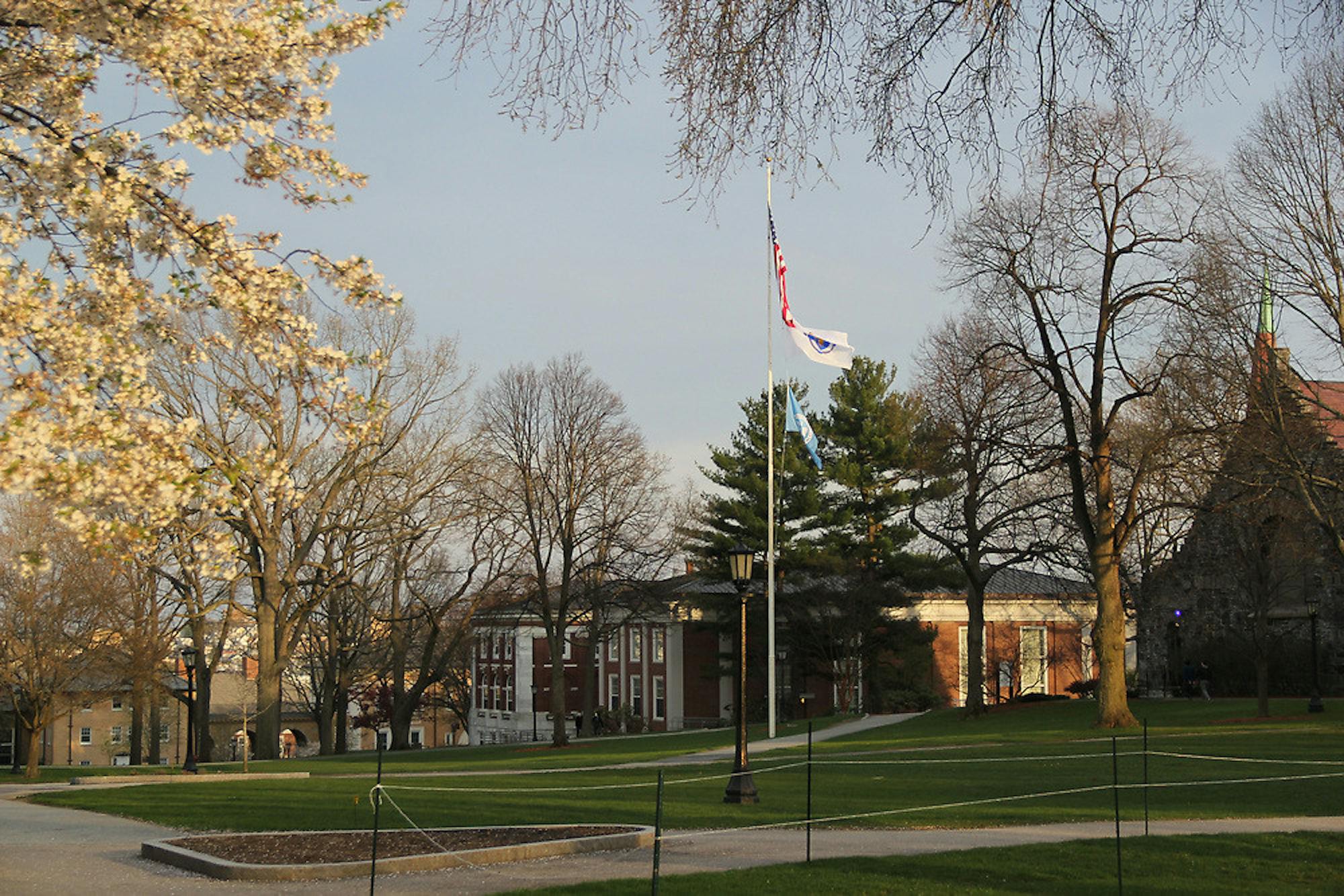Tufts Students for Justice in Palestine (SJP)won the 2020 Collaboration Award as part of the Office for Campus Life’s (OCL) annualstudent organization awards ceremony on April 22, prompting swift disapproval by University President Anthony Monaco and other members of the Tufts administration.
SJPreceived the award in recognition of the coalition the student group has built as part of its “#EndTheDeadlyExchange” campaign, whichseeks to end military training trips for the Tufts University Police Department (TUPD) and all other police militarization on campus. According to SJP member Julia Asfour, the coalition comprises 20 other student and activist organizations on campus.
“Importantly, these are clubs with a bunch of different interests — we’re not just focusing on clubs that promote justice-oriented issues, but instead we’re bringing together individuals who are passionate about our mission and who can connect it to their own struggles,” Asfour, a junior, said. “So that’s what we really wanted to focus on when building this coalition — including as many voices as possible.”
According to the OCL’swebsite, the Collaboration Award celebrates student organizations that have made collaboration a top priority in their programming and have demonstrated they can “break down barriers" between diverse populations and build connections between student organizations on campus. SJP received the award at a virtual ceremony on April 22 hosted by the OCL over Facebook Live.
The following day, Monaco,Provost and Senior Vice President Nadine Aubry,Dean of the School of Arts & Sciences James Glaser, Dean of Student Affairs and Chief Student Affairs Officer ad interim Nancy Thompson, and Dean of the School of Engineering Jianmin Qu released astatement condemning SJP’s receipt of the award.
“We strongly disapprove of this award in light of SJP’s concerning policy positions, including its association with the [Boycott, Divestment and Sanctions] movement, elements of which we view as anti-Semitic,” the statement read. “We as senior leaders take responsibility for this outcome, which should not have happened, and recognize that the award has caused a great deal of pain and concern for Jewish members of our community and others who share concerns about SJP’s policy positions, particularly in light of rising anti-Semitism in the U.S. and around the world.”
Tuftswill not be rescinding SJP’s Collaboration Award, but will instead reevaluate the process by which award decisions are made, according to Patrick Collins, Tufts' executive director of media relations. The administration’s statement said the awards process currently does not involve academic deans or senior university leadership and this year did not include students.
Members of SJP issued their ownstatement one day later expressing outrage at the administration’s position, saying they were disappointed to see not only the efforts of their members and club diminished, but also the efforts of more than 20 other student organizations "disparaged" by senior university leadership.
“Not only is [the administration’s statement] really insulting and horrible to us, but it is also insulting to all of the clubs that we have worked so hard with and that have put a lot of effort into this campaign,” Molly Tunis, a senior and member of SJP, said. “It feels like this award is being taken away from them.”
SJP members said that the administration’s statement poses significant harm to the Arab students in the club who remain targets of such accusations that delegitimize their organizing efforts, as well as dismisses the Jewish students and organizations involved in the #EndTheDeadlyExchange campaign.
They also criticized the university for tokenizing students of color and their advocacy on social media while subsequently criticizing their efforts.
“I think a lot of the reason why so many people are frustrated is that Tufts has a history of putting down activists and making it really hard to organize on campus — especially for organizers of color and students of color — only to brag about how justice-oriented the student body is,” Leila Skinner, a sophomore and member of SJP, said.
SJP is calling on the Tufts administration to revoke its statement and to issue a public apology for dismissing the work of SJP and its coalition of other student and activist groups on campus. As of May 3, 45 student organizations had signed onto SJP’s statement.
The coalition is encouraging members of the Tufts community to email the administration in support of SJP, calling on Monaco and the other administrators to rescind and apologize for their statement. Additionally, over the weekend following the statements, SJPorganized a “twitter storm” in which users barraged Monaco’s and the university’s Twitter accounts with messages in support of SJP.
According to Tunis, SJP has received an outpouring of support both from within and from outside the Tufts community.
“We have been getting messages from students, alumni and local organizations who are wondering how they can support us and how they can get involved,” Tunis said. “And I think this just shows that not only are there people on this campus that care about this issue, but also a ton of people outside of Tufts who have been recognizing the work we’ve been doing for a lot longer than just this past week.”
Collins said the university stands by the administration’s statement.






